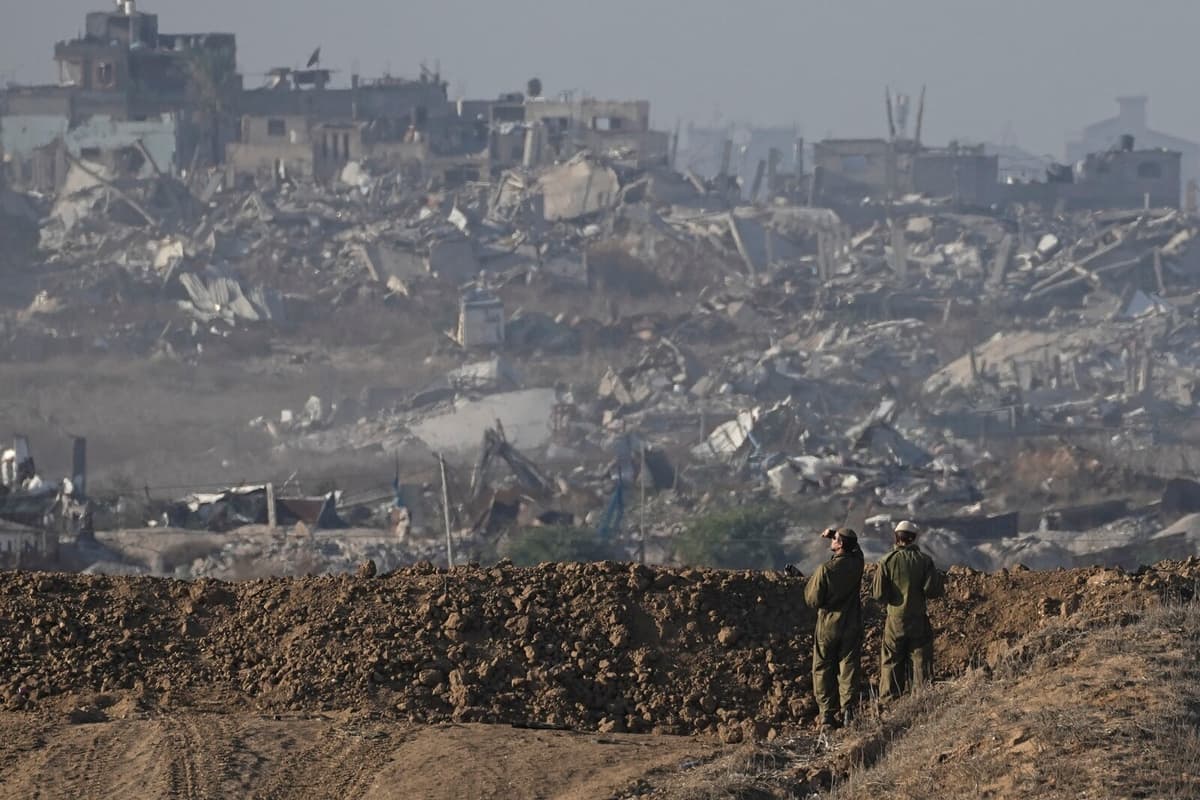Haaretz claims to have spoken to many Israelis who have served as soldiers in the ongoing Gaza War, from reservists to officers.
The anonymous sources tell that commanders have given orders, or in practice allowed, the killing of unarmed Palestinian civilians in an Israel-controlled corridor that cuts through the Gaza Strip.
Shooting in the zone
The Netzarim corridor has become a seven-kilometer-long militarized zone from Israel in the east to the Mediterranean in the west. Palestinians have been explicitly forbidden by Israel to enter the area – but Israeli commanders are said to have declared it a "death zone" where anyone who enters will be shot.
The zone stretches "as far as the snipers can see", according to the newspaper's sources.
The Israeli military's spokespeople regularly report on how many people have been killed by their forces and usually label the dead as terrorists. Israeli units on the ground have then begun to compete, says an officer:
If Division 99 kills 150 people, the next unit aims to kill 200.
10 out of 200
During the war, commanders on the ground have been given greater authority to decide on different attacks, according to the collected testimonies.
In one case, it is described how Israeli soldiers fired numerous shots at a person approaching the Netzarim corridor, only to discover that they had killed a civilian teenager. Outwardly, the boy was said to be a terrorist, and the involved soldiers were praised by their superiors, according to Haaretz sources.
In another case, the military went out and reported an operation where the forces had killed more than 200 militiamen.
Of the 200 deaths, only ten were confirmed to be Hamas members, says an anonymous officer.
"According to all regulations"
Israel's military responds to the allegations in a written statement to the AFP news agency:
"All attacks in the area are carried out in accordance with the procedures and protocols prescribed, including targets that are fought within a narrow time frame due to critical operational circumstances where ground forces face direct threats."
Israel claims that all attacks are directed against militarily justified targets and that all suspected deviations are investigated.
A few weeks ago, Israel's government forbade all public actors in the country from having contact with Haaretz. The investigative newspaper is the oldest in Israel and is generally considered left-leaning and liberal in the Israeli context.
Civilians must not be attacked in armed conflicts and must be protected, according to humanitarian principles that the international community has agreed upon.
The laws of war – formally the international humanitarian law – aim to spare combatants, the wounded, prisoners of war, and civilians from unnecessary suffering. The core consists of the four so-called Geneva Conventions from 1949, which have been ratified by nearly 200 states. Both state and non-state actors are bound by the laws.
Key words are distinction (distinction between civilians and combatants), proportionality (the military significance of an attack must be weighed against the risks it poses to civilians), and precaution (all parties must take all possible precautions to ensure that attacks are only directed against military targets).
The presence of non-civilian persons among civilians does not mean that the group as a whole can be considered a legitimate target. The civilian population must not be used as so-called human shields to defend against attacks.
The Red Cross's special protection emblem must be respected, and the warring parties must do what they can to facilitate humanitarian efforts.
Source: UN, Red Cross, and National Encyclopedia






